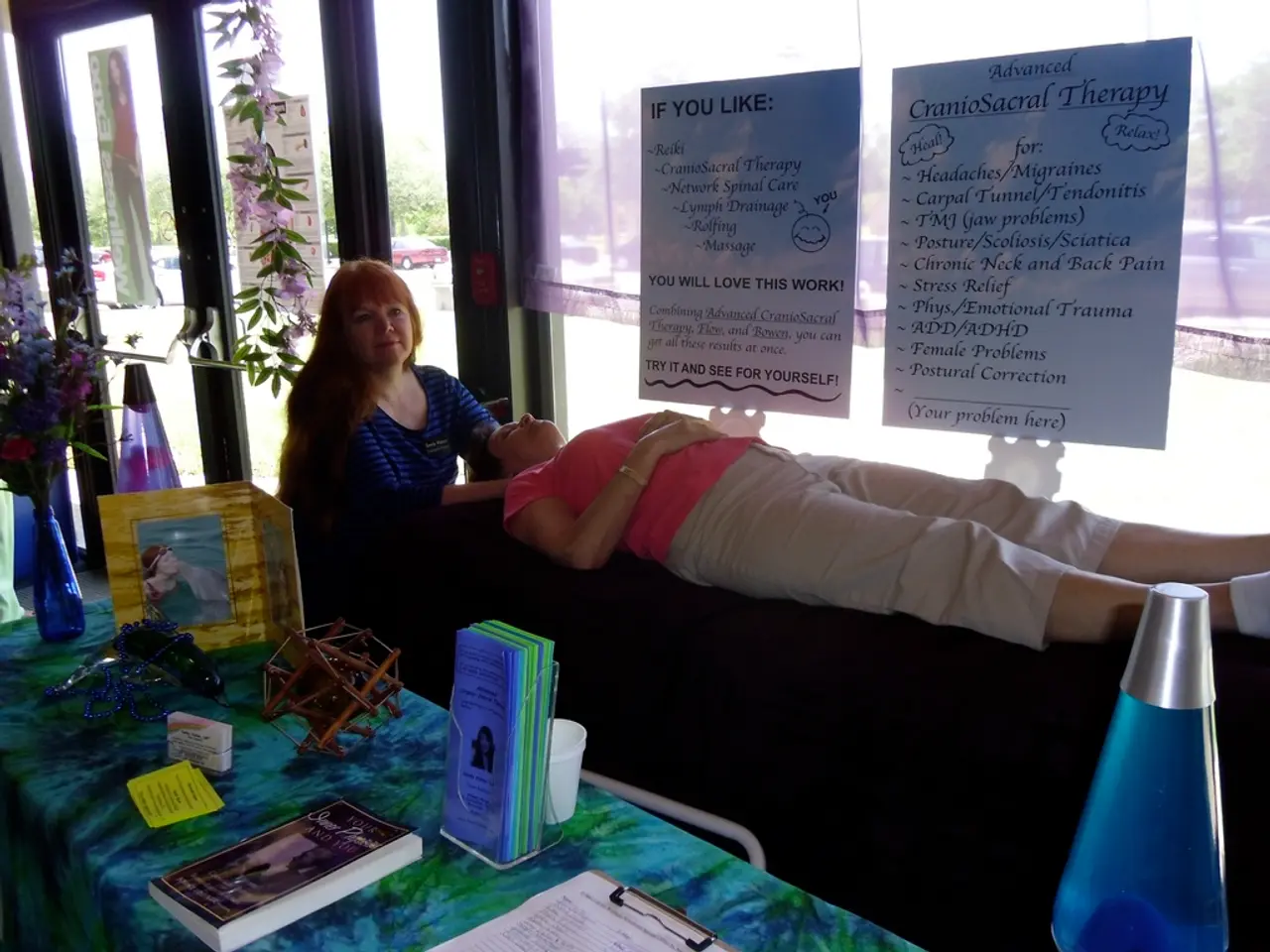Exploring Ecstasy as a PTSD Treatment: Is It Effective and Likely to Gain FDA Approval?
The ongoing research into MDMA-assisted therapy for Post-Traumatic Stress Disorder (PTSD) continues to generate promising results, but as of August 2025, the treatment has not received approval from the Food and Drug Administration (FDA).
In a recent phase 3 trial, Dr. Keith Heinzerling, an internist, addiction medicine specialist, and director of The Pacific Treatment & Research in Psychedelics (TRIP) Program, stated that the study's results strongly support FDA approval for MDMA-assisted therapy for PTSD. The treatment was well-tolerated by participants, with about 67% of them no longer meeting PTSD criteria after treatment.
However, the FDA issued a Complete Response Letter (CRL) rejecting Lykos Therapeutics' New Drug Application (NDA) for MDMA-assisted therapy in August 2024 due to concerns about clinical trial methodology, data reliability, safety monitoring, and ethical issues at certain trial sites.
Despite this regulatory setback, advocacy within the scientific and patient communities continues. The Multidisciplinary Association for Psychedelic Studies (MAPS) has issued an open letter urging federal leadership to prioritize MDMA-assisted therapy due to unmet treatment needs among millions of individuals with PTSD.
The Department of Veterans Affairs (VA) is also preparing for potential FDA approval by initiating research, training programs, and infrastructure development to provide MDMA and other psychedelic therapies safely if approved.
In the trial, 104 participants with moderate or severe PTSD were involved, with about 27% identifying as Hispanic or Latino, and about 34% identifying as non-white. Among the 52 participants who received MDMA, 45 experienced clinically meaningful benefit.
MDMA, also known as ecstasy or molly, is a synthetic drug with psychedelic properties that increases levels of dopamine, norepinephrine, and serotonin. If approved by the FDA, the Drug Enforcement Administration (DEA) would need to reschedule MDMA, which is currently in the most restrictive DEA category (Schedule 1).
Researchers excluded participants with high risk for suicide, comorbid personality disorders, underlying cardiovascular disease, and certain substance use disorders. Side effects and adverse events were reported during the trial.
The sponsor plans to submit a new drug application (NDA) to the FDA for MDMA-assisted therapy for PTSD. Dr. Jennifer M. Mitchell expects that, with luck, MDMA could be approved as a therapeutic for PTSD in 2024.
It's important to note that long-term data on the effects of MDMA misuse is still needed. Research is ongoing about using psychedelics in treating mental health conditions, including depression.
In summary, MDMA remains an investigational treatment for PTSD, awaiting further trials and regulatory review before it can be legally marketed and widely prescribed in the U.S.
The ongoing scientific research into the usage of MDMA-assisted therapy for other mental health conditions, such as depression, is also progressing, parallel to its application for Post-Traumatic Stress Disorder (PTSD). Despite initial rejection by the Food and Drug Administration (FDA) in August 2024, the Multidisciplinary Association for Psychedelic Studies (MAPS) and the Department of Veterans Affairs (VA) continue to advocate for MDMA-assisted therapy due to unmet mental health-and-wellness needs among various demographic groups, including PTSD patients.




